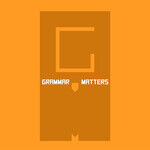Q: I often hear sentences like this: "We had three times less rain this year than last." I think what they mean is that we had one-third the quantity of rain this year as we did last year, but I also think that one cannot use the word "times" when implying a decreased quantity. — Nick Kyriazi, Pittsburgh
A: Your hesitations are justified. As you suggest, "subtractive constructions," such as "three times less" and "three times smaller," present two problems:
1. "Three times less rain than last year" is ambiguous. Mathematically speaking, it could conceivably mean either one-third of last year's amount, or one-quarter of last year's amount, or even a negative number.
2. The word "times" is so closely associated with multiplication ("3 times 15") that it's jarring to hear it used to denote a decrease.
So I'd avoid these "times less" constructions and use fractions instead: "The amount of rain this year was one-third of the amount last year."
Q: I just finished reading a mystery by an author who used the phrase "off of" so many times that I cringed and gritted my teeth. Please tell me how or when that would be correct. Or am I totally wrong? — Marilyn in New Jersey
A: Many purists look down their noses at the idiom "off of," so you're not at all wrong to sniff at this usage.
Using "off of" for "off" is clearly redundant. "The cat jumped off the table" (as my cat, Tabby, just did) means the same thing as "The cat jumped off of the table."
But English speakers have been using "off of" since the 1500s. That's why authors, like the mystery writer you cite, use "off of" in dialogue: "A fall off of a tree" (William Shakespeare); "I'd borrow two or three dollars off of the judge" (Mark Twain); "Who ... do you eat off of?" (Ernest Hemingway).
"Off of" will continue to flourish in spoken English for one simple reason: It's more emphatic than the single syllable "off." Saying "off of" is like blowing your car horn twice. I can guarantee you that most grumpy neighbors will yell at trespassing kids: "Get off'a my lawn!"
Any chance we ever had of banishing the redundant "off of" from spoken English vanished forever in 1965 when the Rolling Stones sang, "Hey! You! Get off of my cloud!" Their echoing refrain permanently implanted "off of" in the ears of baby boomers. That's why today's "off of" haters can't get no satisfaction.
Rob Kyff, a teacher and writer in West Hartford, Conn., invites your language sightings. Send your reports of misuse and abuse, as well as examples of good writing, via e-mail to Wordguy@aol.com or by regular mail to Rob Kyff, Creators Syndicate, 737 3rd Street, Hermosa Beach, CA 90254.






View Comments